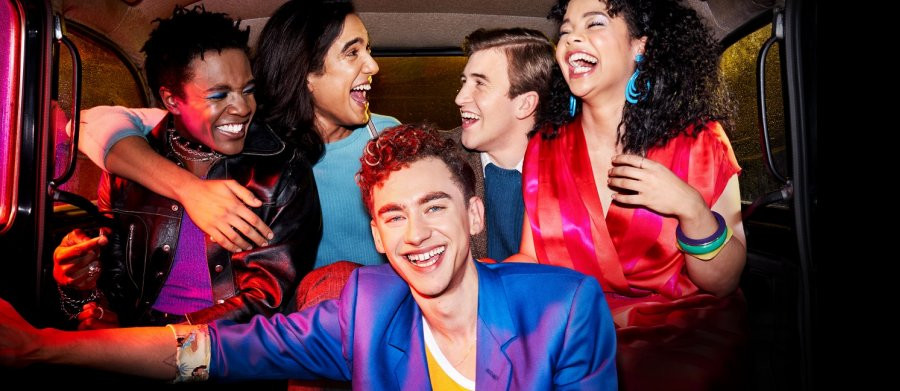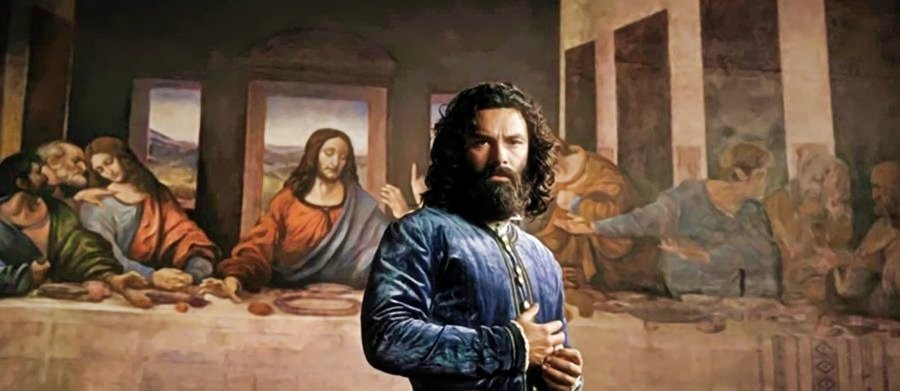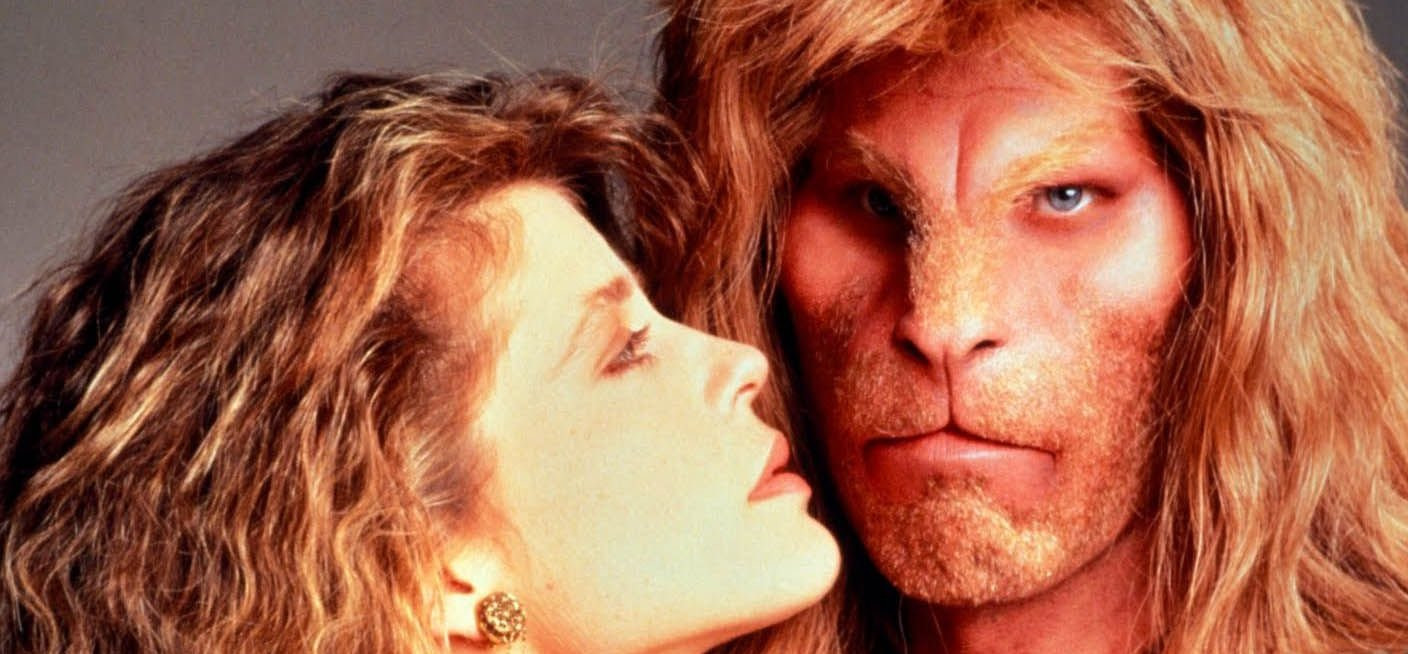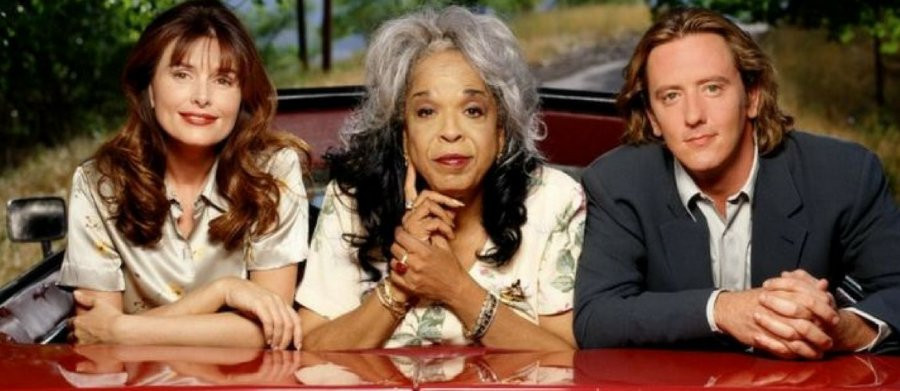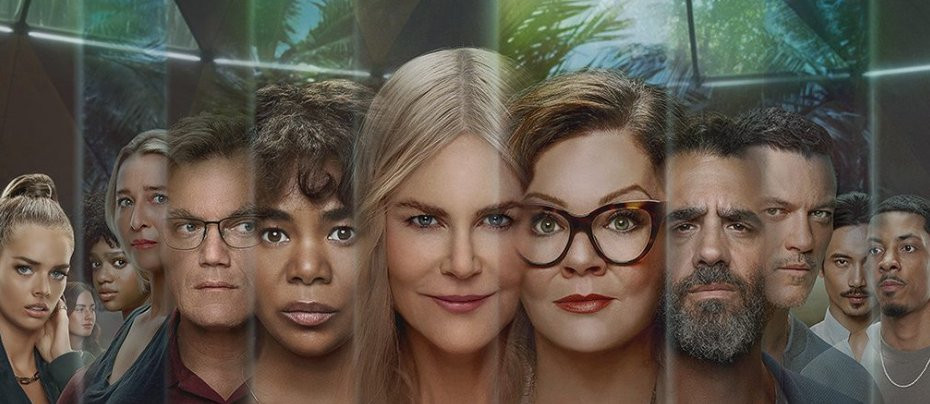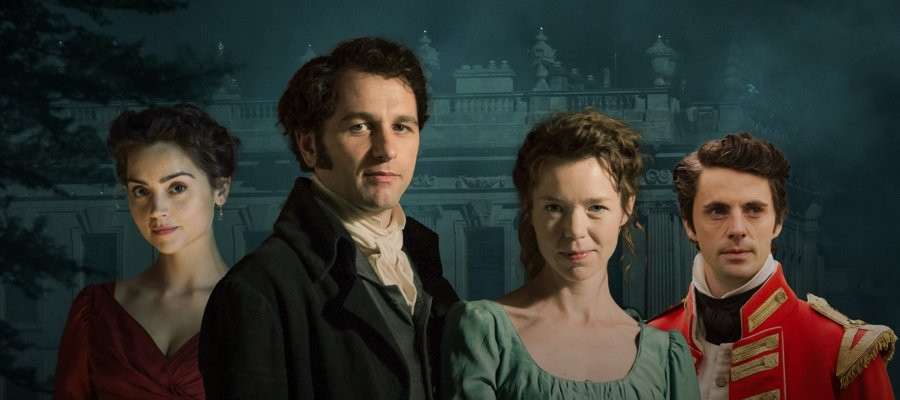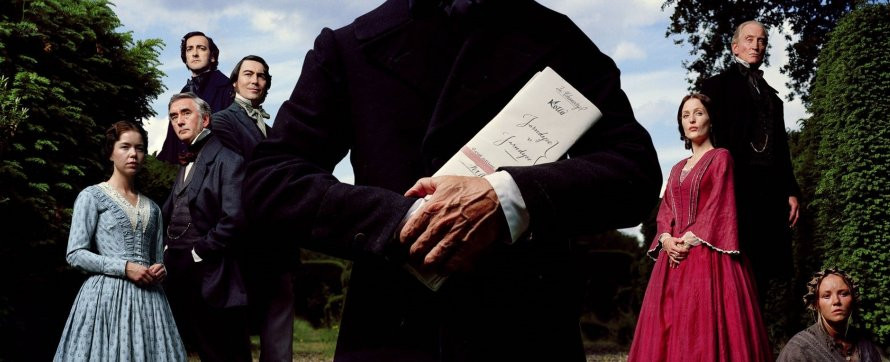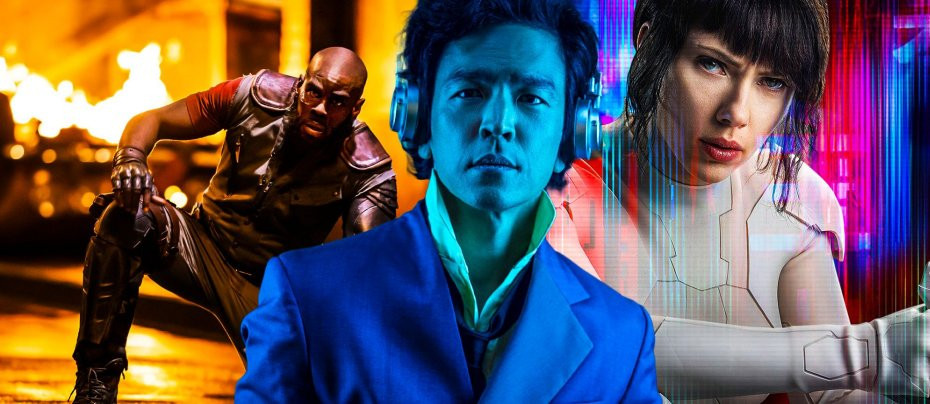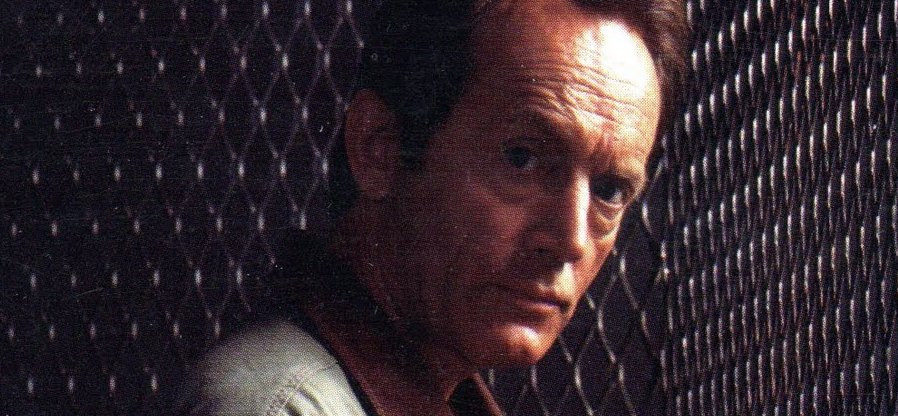
The Irregulars
2021 - United KingdomThe Irregulars is one of those series that shouldn't work, but somehow does, although a lot of critics clearly think it doesn't. It is, in all fairness, a bit of a mess, a hotch-potch of Sherlock Holmes, Stranger Things, Victorian imagery, modern stylings, teen drama and swearing – lots and lots of swearing. Yet, this collision of influences is produced with enough style and performed with enough verve to carry it off. It's a mishmash, but an entertaining one.
The series is the creation of Tom Bidwell (Watership Down, My Mad Fat Diary), who has reportedly been pitching what he describes as his "dream project" for ten years. The series is loosely – and I mean loosely – based on the Sherlock Holmes works of Arthur Conan Doyle, particularly the novels A Study in Scarlet and The Sign of Four and the short story "The Adventure of the Crooked Man." These stories featured a rag tag bunch of homeless boys called the Baker Street Irregulars, who would act as Sherlock's gophers, eavesdroppers and errand boys, and would go on to be included, in one way or another, in many of the hundreds of Sherlock Holmes adaptations and pastiches' over the last century or so.
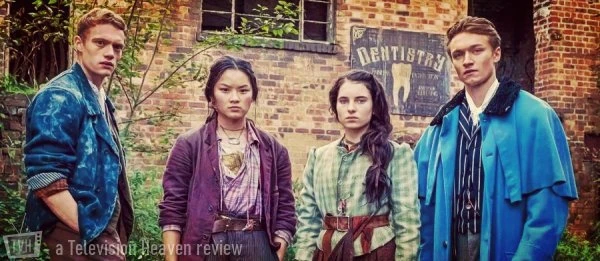
Any actual resemblance to the Sherlock Holmes canon is fleeting, however. While the inclusion of Sherlock Holmes is the hook, it's probably best to think of this series as entirely its own thing. Unlike more faithful adaptations of Sherlock Holmes, which focused on the ins-and-outs of crime and investigation and were strictly rationalist, The Irregulars is a supernatural horror series full the brim with magic, ghosts and nightmarish imagery. There's been a strange obsession over the years with combining Sherlock Holmes stories with the paranormal, whereas the flirtings with gothic horror in the original stories, such as The Hound of the Baskervilles, were all ultimately explained away.
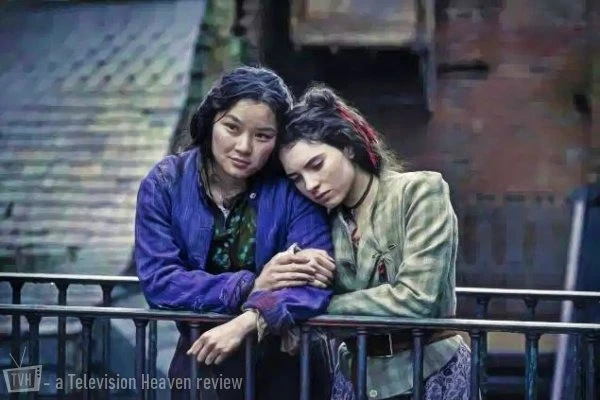
The Irregulars focuses on its own band of street urchins, four mouthy teens who live in a rundown basement in London using their wits and desperate luck to survive. The main focus is on Bea and Jessie, half-sisters who grew up in the workhouse after losing their mother. Bea is the de facto leader of the gang, a strong-willed, compassionate and intelligent tomboy. She is portrayed brilliantly by Northern Irish actress Thaddea Graham (who manages to keep her London accent even when around other Ulster actors, not an easy task). An up-and-coming star, known for Curfew, Us and The Letter for the King, Graham has a strong presence, dominating all her scenes and is clearly destined for big things. Eighteen-year-old Darci Shaw (Judy, The Bay) plays her younger sister Jessie, who's confident but vulnerable, and has also inherited psychic abilties which make her a target for supernatural forces, but also an asset in investigating and combating them.
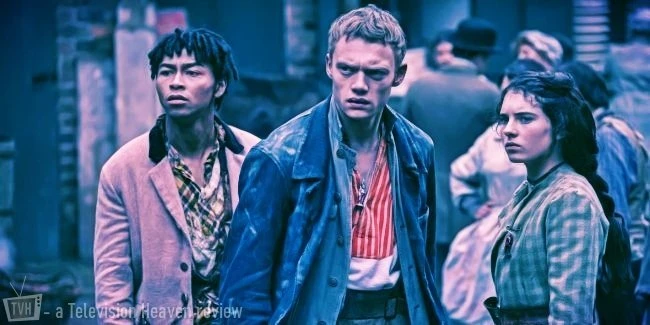
Along with the sisters are Billy (likely inspired by the leader of the Irregulars in print, Billy Wiggins) and Spike. Billy, played by Jojo Macari (Sex Education, Endeavour), is the eldest of the group, an angry but loyal young man from a rough background, who looks like he's about to start on anyone and everyone at the slightest provocation. He and the girls met in the workhouse as kids and have been firm friends ever since. Spike (McKell David, Black Mirror) is the charmer of the group, witty and flirtatious, but he only has eyes for Jessie.
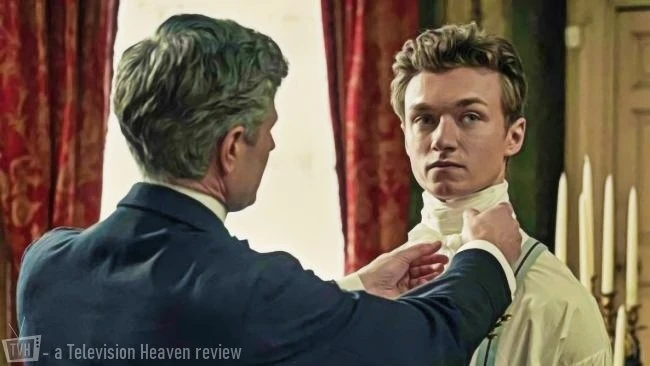
Into this group comes Leo, the unlikely fifth member. Played with good-natured class by Harrison Osterfield, Leo is in fact Prince Leopold, the youngest son of Queen Victoria, and the only character in the series based on a real historical personage. Prince Leopold suffered with a particularly serious case of haemophilia, which killed him at the age of thirty. Leo in the series is only seventeen, sherltered by his position and health problems and desperate to meet people and see more of life. He sneaks out and meets the group, falling head-over-heels for Bea, but naturally keeping his identity secret from the gang. It's a sweet and believable performance by Osterfield, who shares some good chemistry with Graham.
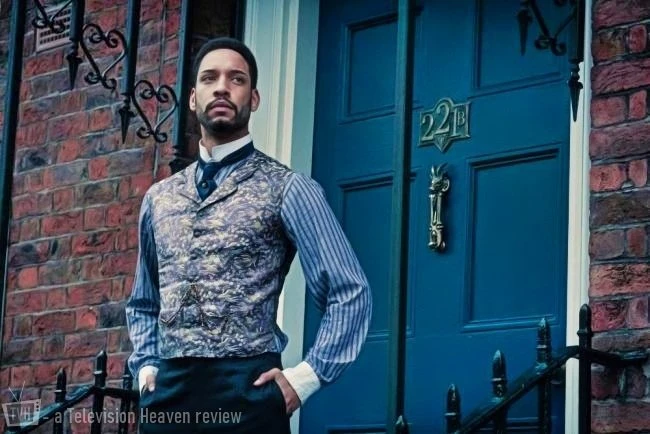
The Irregulars themselves are a pretty blank slate for a writer, and it's in his interpretation of Holmes and Watson that Bidwell takes more chances. To begin with, we deal only with Watson, who employs Bea and her gang to investigate supernaturally-motivated crimes with no rational explanation. Played with buttoned-up superiority by Royce Pierreson (Line of Duty, Wanderlust, The Witcher), this version of Watson is an angry, condescending and manipulative sort who has little care for the kids under his employ. Although he mellows and opens up as the series progresses, he's a deeply unlikeable character for the most part. Bidwell wisely keeps Sherlock off screen for the first half of the season, giving us only glimpses of his behaviour, and they're not very flattering. This Holmes is unpredictable, aggressive and frequently incapable of looking after himself. This is a Sherlock Holmes who, having lost someone, has fallen completely into his drug addiction. Both Holmes and Watson are obsessed with impressing people – Holmes holding onto his reputation as a master detective but making increasingly poor and desperate deductions, and Watson trying to impress Holmes himself.
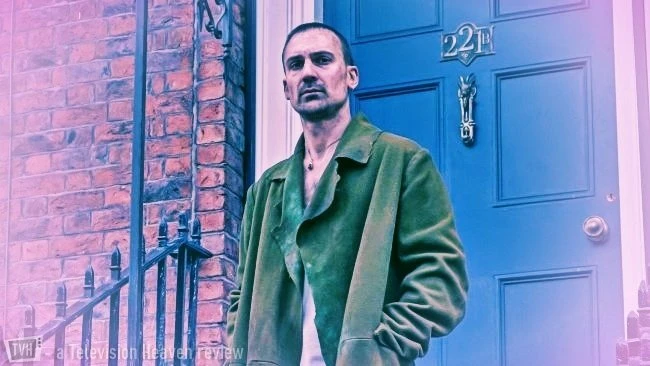
When he eventually appears properly, Sherlock is played by Henry Lloyd-Hughes (The Inbetweeners, Les Misérables), who works well as this shaven-headed, desperate and selfish version of the detective. We also meet his brother Mycroft, here an undercover occultist. Portrayed by Jonjo O'Neill (The Queen's Gambit, Vera), this version of the normally confident and indefatigable Mycroft is a frightened and uncertain man. Other classic Sherlock Holmes characters are featured and frankly unrecognisable: Denise Black as a bullying Mrs Hudson who rents out slums to the poor, and Aiden McArdle as a bigoted bastard of a Lestrade. There's virtually no resemblance between this story and the Sherlock Holmes canon (for one thing, Sherlock should be the same age as Leo, if there's any relation to either canon or real history).
No, it's best to look at The Irregulars as a supernatural drama that features some characters inspired by Sherlock Holmes stories. Taken in this light, it works. A Rip has opened between the physical and spirit worlds (there's always a Rip, or a Rift, or a Hellmouth to explain away the monsters), and people reaching out in prayer and desperation are being cursed with terrible powers. The first of the series' eight episodes, "An Unkindness of London," features Rory McCann (Hot Fuzz, The Book Group, Game of Thrones) as a man who is abducting babies by controlling birds, with a suitably Hitchcock-esque climax. Episode two, "The Ghosts of 221B," involves a frankly terrifying tooth fairy played by Sheila Atim. Noted actor Anna Maxwell Martin (Line of Duty, Bleak House, Motherland) turns up later with a hammy performance as a Frankenstein-like surgeon, reanimating her husband with the help of multiple stolen body parts. The series doesn't shy away from the gruesome, featuring bodies with their eyes pecked out, thrown from buildings or hacked apart, keeping the gore to a level just below that which would make it impossible to pass for teen viewing.
Several of the episodes, particularly towards the finale, focus on various supernatural agencies trying to use Jessie for her powers. Throughout the series she is visited by a mysterious figure known only as the Linen Man, a well-dressed and well-spoken American Southerner who appears to her in her dreams like a sort of occult Colonel Sanders. Played with suitably enigmatic flair by Clarke Peters (The Wire, Treme), he at first seems to be looking out for Jessie but might as well have "obvious villain" printed on his hat. Over the course of the series we also learn gradually of the link between Holmes and Watson to Bea and Jessie's lost mother, played by Eileen O'Higgins (Brooklyn, Mary Queen of Scots), and of them all to the Rip that threatens the world.
There are definitely areas where the series doesn't work. The twists are fairly obvious, although the fast pace and the flourish of the revelations disguise this. There's a jarring clash between the Victorian setting and the modernism of the series, with the kids speaking in a thoroughly twenty-first century way and the adults more formal and old-fashioned, and a mix of contemporary music and clearly Sherlock-inspired orchestral sequences. This all seems like a deliberate stylistic choice, and it works as often as it doesn't, but there are certainly times when it pulled me out of the story. There's also some frankly awful lines of dialogue in there ("It's almost orgasmically linear" is the single most meaningless line I've heard in a long time).
Yet, for all this misjudged nonsense, for all the warped versions of classic characters, The Irregulars works as over-the-top, horror entertainment. The Irregulars themselves are flawed but likeable characters with an increasingly complex dynamic between each other, portrayed by five talented and watchable actors. The relationships are at the core of the series, with the sisterly love between Bea and Jessie, the slowly building friendship between the outsider Leo and Spike and Billy, and the obligatory love triangles. Yes, there's the contest between Billy, Bea and Leo, but there's also one at 221B Baker Street, with Watson giving a refreshingly frank admittance of love for Sherlock.

The supernatural threats are grim and fantastical, but the series manages to say some important things. The fourth episode, "Both the Needle and the Knife," while on the surface a lurid tale of a skin-stealing shapeshifter, has some powerful things to say about abuse and power. The finale of the series deals with what is, essentially, suicide and depression, filtered through a world-ending cosmic threat. It also features a hugely diverse cast, with what appears to be completely open casting in terms of ethnicity. This is another element that can pull you out of the fiction – having a black man play Watson is commendable, but in a Victorian setting would have consequences for his character and how he is treated – but it's nonetheless good to see such open-minded casting.
Silly, melodramatic and irreverent, The Irregulars gets away with its conceits and sometimes bizarre choices by being unashamedly entertaining. A second series has already been commissioned by Netflix, which, with a little tweaking of the weaker elements, could be a real winner.
Review: Daniel Tessier
Dan describes himself as a geek. Skinny white guy. Older than he looks. Younger than he feels. Reads, watches, plays and writes. Has been compared to the third, fourth, fifth, sixth, seventh, eighth, tenth, eleventh and twelfth Doctors, and the Dream Lord. Plus Dr. Smith from 'Lost in Space.' He has also had a short story published in Master Pieces: Misadventures in Space and Time a charity anthology about the renegade Time Lord.
Dan's web page can be here: Immaterial
Seen this show? How do you rate it?
Seen this show? How do you rate it?
Published on April 11th, 2021. Written by Daniel Tessier for Television Heaven.


